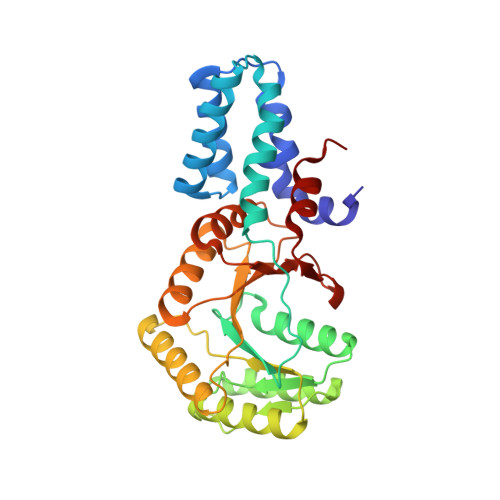Discovery of fragments that target key interactions in the signal recognition particle (SRP) as potential leads for a new class of antibiotics.
Faoro, C., Wilkinson-White, L., Kwan, A.H., Ataide, S.F.(2018) PLoS One 13: e0200387-e0200387
- PubMed: 30044812
- DOI: https://doi.org/10.1371/journal.pone.0200387
- Primary Citation of Related Structures:
6CQP, 6CS8, 6CVD, 6DLX - PubMed Abstract:
Given the increasing incidence of antibiotic resistance, antibiotics that employ new strategies are urgently needed. Bacterial survival is dependent on proper function of the signal recognition particle (SRP) and its receptor (FtsY). A unique set of interactions in FtsY:SRP-RNA represents a promising candidate for new antibiotic development as no antibiotic targets this complex and these interactions are functionally replaced by protein:protein interactions in eukaryotes. We used a Fragment Based Drug Design (FBDD) approach to search for new compounds that can bind FtsY, and have identified three lead fragments. In vitro and in vivo analyses have shown that despite a high micromolar binding affinity, one fragment has some antimicrobial properties. X-ray structures of E. coli FtsY:fragments reveal the fragments bind in the targeted RNA interaction site. Our results show that FBDD is a suitable approach for targeting FtsY:SRP-RNA for antibiotic development and opens the possibility of targeting protein:RNA interactions in general.
Organizational Affiliation:
School of Life and Environmental Sciences, The University of Sydney, Sydney, Australia.

















